Radiation Therapy
Radiation therapy is a medical treatment that utilizes high doses of ionizing radiation to target and destroy abnormal cells, particularly cancer cells. It is often employed when other treatment options may not be suitable or well-tolerated by the patient. While painless, radiation therapy comes with certain considerations.
At Zitelli & Brodland, radiation therapy may be considered for patients facing specific challenges with other available procedures. This treatment option is carefully chosen based on individual circumstances, and healthcare providers at Zitelli & Brodland tailor their approach to the unique needs of each patient.
Examples of Radiation Therapy
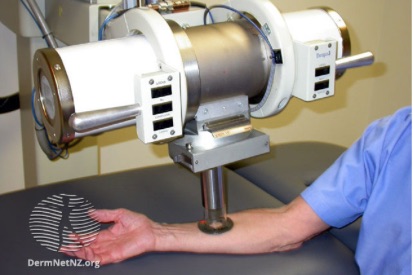
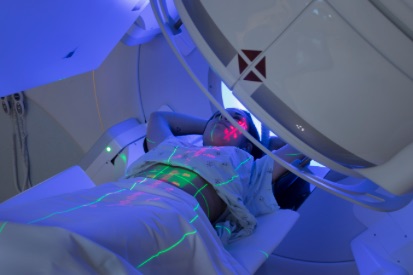
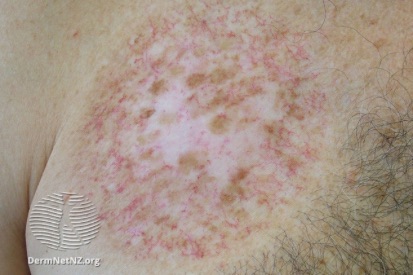
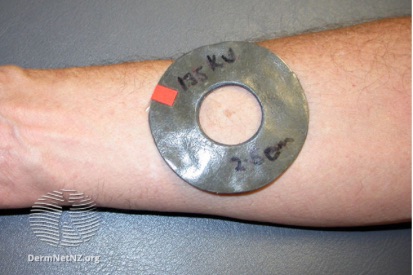
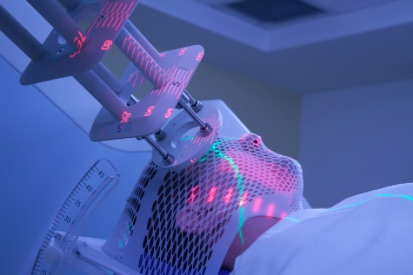
Radiation Therapy Explained
Radiation therapy is a medical treatment that uses high doses of radiation to target and destroy cancer cells. This treatment is typically considered for patients who may face challenges with other available procedures. It's known for its expense and the need for multiple visits to the radiation treatment center, making it less convenient than some alternative options. However, it becomes a viable choice for individuals who may not tolerate other interventions.
It's important to note that cure rates with radiation therapy tend to be lower when compared to surgical approaches. Despite its drawbacks, radiation therapy remains a valuable option for specific patient scenarios where other treatments may not be feasible or well-tolerated. The decision to pursue radiation therapy should be made in consultation with your healthcare provider, weighing the potential benefits and risks based on individual circumstances.
What are the Benefits of Radiation Therapy
Radiation therapy offers several benefits as a medical treatment for certain conditions. Firstly, it provides a non-invasive approach to targeting and destroying abnormal cells, making it an option for patients who may not tolerate surgical procedures or other interventions. The precision of radiation therapy allows healthcare providers to target specific areas, minimizing damage to surrounding healthy tissues.
In cases where surgery may be challenging or pose risks, radiation therapy becomes a valuable alternative. Additionally, it can be particularly effective for treating tumors that are difficult to reach through surgery. The flexibility of radiation therapy in terms of delivery and dosage allows for personalized treatment plans tailored to each patient's unique condition.
Radiation Therapy FAQs
The decision is based on factors such as the type, location, and stage of cancer, as well as your overall health. It's often considered when surgery is not feasible or poses risks, and it may be used alone or in combination with other treatments.
Radiation therapy itself is painless. You won't feel the radiation, but there may be some discomfort or side effects depending on the treated area. Your healthcare team will provide strategies to manage any potential discomfort.
Each session is relatively short, typically lasting 15-30 minutes. However, the overall treatment course may span several weeks, with daily or intermittent sessions depending on your specific treatment plan.
Hair loss is not a common side effect of radiation therapy unless the treatment is near hair-bearing areas. Your healthcare team will discuss potential changes and what to expect based on your treatment plan.
What to Expect at Your Radiation Therapy Appointment
When attending a radiation therapy appointment, you can expect a carefully orchestrated and patient-centered approach to your treatment. The process typically begins with a comprehensive consultation, during which healthcare providers assess your medical history, conduct examinations, and discuss the specifics of your condition. Following this, a personalized treatment plan is developed to address your unique needs.
On the day of the radiation therapy appointment, you will be guided through the procedure by experienced and specialized medical professionals. The treatment itself is painless, and you may not feel anything during the session. Precision is a key aspect, with the radiation precisely directed to target the affected area while minimizing exposure to surrounding healthy tissues.
How to Prepare for Radiation Therapy
Planning for Recovery after Radiation Therapy
Planning for recovery after radiation therapy involves a thoughtful and proactive approach to support your well-being during the healing process. Firstly, follow the post-treatment care instructions provided by your healthcare team, including any specific guidelines for skincare, hygiene, and activity restrictions. Prioritize rest and ensure you get adequate sleep to support your body's recovery. Maintain a well-balanced and nutritious diet, focusing on foods that promote healing and boost your immune system.
It's crucial to stay hydrated to help your body flush out toxins and aid in recovery. Engage in light physical activity, as recommended by your healthcare provider, to promote circulation and prevent stiffness. Attend scheduled follow-up appointments to monitor your progress, address any concerns, and make adjustments to your care plan if necessary.
Featured Products

EltaMD UV Lotion Broad-Spectrum SPF 30
Develop a daily sun protection habit by keeping this moisturizing sunscreen handy for the entire family. Use EltaMD UV Lotion from head to toe to hydrate the skin and protect against sun damage.

EltaMD UV Replenish SPF 44
UV Replenish Broad-Spectrum SPF 44 is a 100% physical actives sunscreen that restores moisture to dry, stressed skin. Formulated with chemical-free active ingredients, it provides gentle yet effective sun protection.


